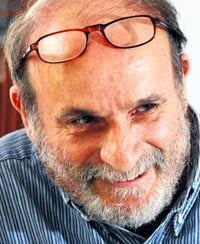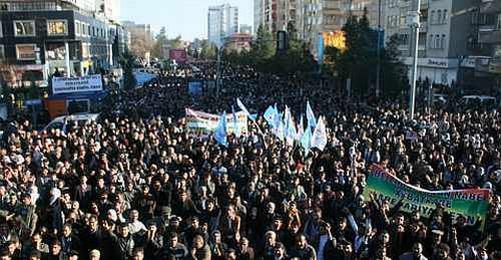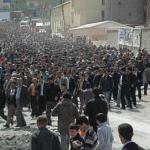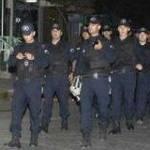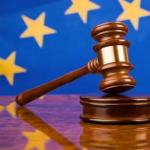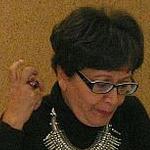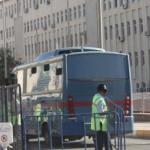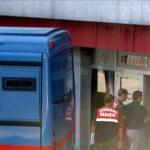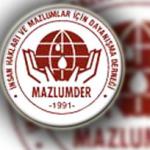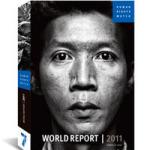The 15th hearing of the so-called KCK trial started at the Diyarbakır 6th High Criminal Court on Thursday (13 January). 151 Defendants, 104 of whom are detained, stand accused of their alleged affiliation to the Democratic Confederation of Kurdistan (KCK), the urban arm of the outlawed armed Kurdistan Workers Party (PKK). The court once more dismissed the defendants' request to present their defence speeches in Kurdish as their mother tongue. Court President Menderes Yılmaz registered for the record that the defendants wanted to answer the questions in a language "supposed to be Kurdish". Yılmaz pointed to the last hearing when Kurdish was registered as an "unknown language" and said that this did not refer to the Kurdish language in general but to the court board not knowing the language.
Starting the interrogation, Judge Yılmaz announced that the previous decision would not be revoked. Hence, the court refused permission to present the defence in "a language that is supposed to be Kurdish".
As in the previous hearing, the defendants started to answer the questions in Kurdish. The judge declared that the interrogation would not be continued that way.
Interrupting answers in Kurdish
Lawyer Selçuk Kozağaçlı spoke on behalf of all joint attorneys of the defence. He stated that the court could not continue the trial without having completed the phase of interrogation. He claimed that the court should assist the defendants to present their defence in their mother tongue. Otherwise, a severe violation of rights would be constituted, Kozağaçlı concluded.
The lawyer said that after an interrogation that was not made in Kurdish, the lawyers of every single defendant would have to be asked whether they have anything to say. This, according to Kozağaçlı, was the opinion of all joint attorneys of the defence.
However, the court insisted on the decision. Judge Yılmaz asked each defendant for his/her defence. When the defendants answered in Kurdish, he interrupted them and went on to the next defendant.
Before the pronouncement of any interim orders, the defence lawyers requested the release of the detained defendants pending trial. The demand was not evaluated at the Thursday hearing. The case was adjourned to today (14 January). Among the defence lawyers are Yusuf Alataş, Öztürk Türkdoğan, Ergin Cinmen, Diyarbakır Baro başkanı Mehmet Emin Aktar, Şiar Rişvanoğlu and Meral Danış Beştaş.
Adjourned to the following day
The defence lawyers criticized the court's decision on the language of the defence and said that this prevented them from fulfilling their duty. They demanded to change that situation and give an end to such a "disgrace".
The group of defendants includes executives of the Human Rights Association (İHD), lawyers, academics, members of non-governmental organizations and unions, executives of local TV stations, and newspaper workers. They are alleged of "disrupting the unity of the state and the territorial integrity", "membership and administration of a terrorist organization" and "assisting and accommodating a terrorist organization".
The lengthy indictment comprises a total of 7,578 pages and seeks prison terms between 15 years and aggravated life sentences for the defendants. A part of the 104 detained defendants have been imprisoned for 21 months.
The Peace and Democracy Party (BDP) and the Initiative for Freedom organized several protest actions in the meantime to end the detention of the detained defendants of the KCK trial.
Criticism on Turkish KCK trial and on AKP
About 8,000 people gathered in front of the Diyarbakır Station Square during the Thursday hearing. The meeting then turned into a protest march joined by more than 10,000 people. BDP deputies Gültan Kışanak and Selahattin Demirtaş and Co-Chairs of the Democratic Society Congress (DTK), Ahmet Türk and Aysel Tuğluk, joined the demonstration. Kurdish politician Türk addressed the crowd in Kurdish and criticized the policies of the ruling Justice and Development Party (AKP) and the KCK trial. He emphasized the demand for a democratic autonomy.
Also left-wing Member of the German Parliament Andrej Hunko attended the protest. The demonstrators remained in front of the courthouse also after the members of parliament had returned to the courtroom. The police used tear gas to disperse the crowd.
After the protestors had lit fireworks, the police intervened with tear gas. The protestors tried to escape into the building of the Gazi municipality, a district of Diyarbakır in the pre-dominantly Kurdish region of south-eastern Turkey. People were injured by the dense crowd and by broken windows.
The police first stopped the crowd but gave permission for the protest march after the hearing.
The tension rose when the police tried to set up a barricade in front of the courthouse. Demonstrators threw stones to the windows and also used Molotov cocktails.
People also clashed with the police during protests against the trial in the south-eastern cities of Hakkari and Yüksekova.
Trial observers
The KCK trial was attended by observers from Turkey and abroad, among them Istanbul Bar Association President Ümit Kocasakal and one of his predecessors, Turgut Kazan, the Mersin Bar Association President Hulki Özel, Radikal newspaper writer Dilek Kurban, Education and Science Workers' Union (Eğitim-Sen) Leader Zübeyde Kılıç, Municipal and Local Authority Trade Union (Tüm Bel-Sen) Leader Vicdan Baykara, writers Temel Demirer and Sibel Özbudun, members of parliament of the BDP, journalist Ertuğrul Kürkçü, International PEN official Eugene Schoulgin, spokesman of the Initiative against Thought Crimes Şanar Yurdatapan, lawyer of the Labour Party Kamil Tekin Sürek, Deputy Chair of the Freedom and Solidarity Party Sema Solaklı, Co-Chair of the Human Rights Association Hüsnü Öndül, Yavuz Önen as the first president of the Turkish Human Rights Foundation and representatives of the Peace Parliament. (EÜ/EÖ)





